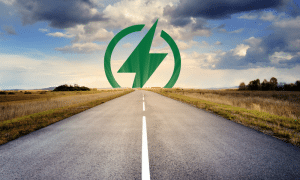BlackRock, a US investment giant, recently confirmed that it purchased Akaysha Energy, Melbourne’s battery storage developer. The company will invest $1 billion to roll out its portfolio of nine big battery projects in Australia in the next three to five years.
BlackRock is the biggest player to enter the battery storage sector in the country so far., and it’s expected that their entry will result in a bit of a shake-up.
Australia needs a lot of battery storage as coal plants retire and more wind and solar projects are launched and used. However, BlackRock will be competing directly with established players and business plans in pursuit of its own portfolio.
The first will be their 150MW, two-hour battery called Ulinda Park, which will be located near the Kogan Creek coal generator in the Western Downs region of Queensland. Now, the strategy with Akaysha will be to own and operate some assets.
The other two identified batteries in their portfolio are unique—one is the Orana near Wellington in the central west of NSW, where the state’s first renewable energy zone sits, that is proposing up to eight hours of storage.
Then the other is next to the Palmerston sub-station near Launceston, which will be Tasmania’s first big battery. It also has plans to deploy advanced inverters and become a “virtual synchronous machine” for the island’s grid.
Why Akaysha?
Many are wondering why BlackRock decided to work with Akaysha being that the company was only established in early 2021 by a group of former Tesla, Macquarie and Angie executives. According to BlackRock, even if they’re new, their teams have worked with large-scale batteries that have been deployed in Australia.

The Rise of Battery Storage Systems
Battery storage systems are crucial for stabilising energy generation, and in Australia, utility-scale batteries are gaining so much popularity. The Victorian Big Battery is one of the largest batteries seen worldwide and is expected to reach new heights in the coming years.
Indeed, the energy networks in the country are evolving. Lithium-ion battery storage projects will help make the national energy transition more secure and manageable. To add to this, the lowering costs with grid-scale battery storage technologies make these goals even more possible.
Governments and private companies are investing in big batteries to expand network storage capabilities. And this is why large-scale, grid-connected battery systems will play a significant role in the energy future of the country.
Large-scale energy storage, like the Battery Energy Storage System (BESS), provides a wide range of benefits to electricity grids. The batteries can also be used for energy market participation, load shifting, and more. These will mitigate costs and suspend the need for additional generation infrastructure or network upgrades to meet the demand.
The Victorian Big Battery was launched in December 2021 and is the largest operational battery in the country. It has 300MW/450MWh BESS and is located in Geelong. With this, it will help Victoria reach its target of 50 per cent renewable energy generation by 2030. Clean Energy Finance Corporation (CEFC) has provided $160 million for its construction.
Another one is the Hornsdale Power Reserve in South Australia, which has a capacity of 150MW/194MWh. Currently, it is the second largest operational battery in the country, with the original construction project completed in 2017.
The Lake Bonney BESS in South Australia has a capacity of 25MW/52MWh was energised in 2019 and is located with the Lake Bonney Wind Farm.
There is also the Gannawarra Energy Storage System in Victoria with a capacity of 25MW/50MWh with the Gannawarra Solar Farm.
Since 2015, Australian batteries are now at 140,000, with residential storage making up more than half of the installed capacity, while commercial and large stage batteries amount to 1192 MWh.
Last year, CEP Energy announced the largest battery proposed at 1.2 gigawatts, which will set a new global benchmark, and it is planned to start operations in 2023.
Energy Matters has over 17 years of experience in the solar industry and has helped over 40,000 Australian households in their journey to energy independence.
Complete our quick Solar Quote Quiz to receive up to 3 FREE quotes from trusted local installers – it’ll only take you a few minutes and is completely obligation-free.











































